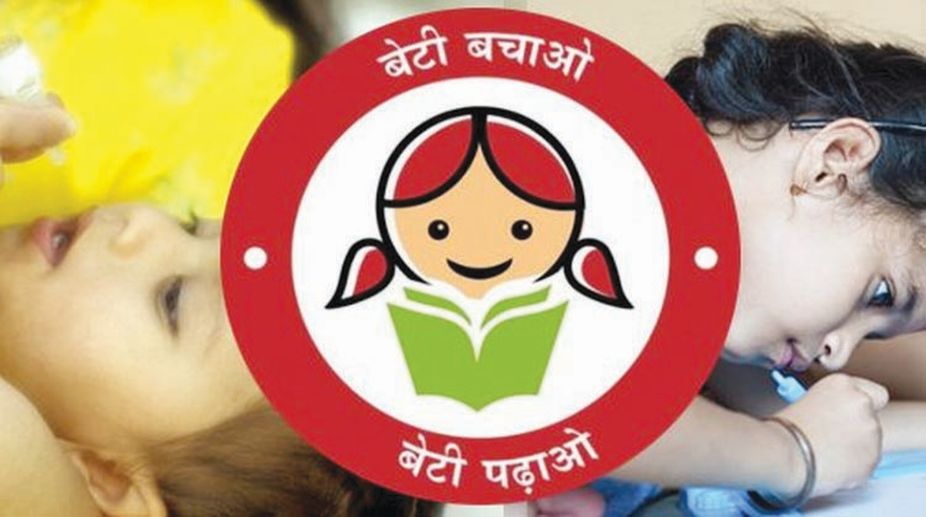Lok Sabha Election 2024, Phase 1: Voting on 102 seats underway
In the first phase of Lok Sabha elections 2024, as many as 102 constituencies spanning across 21 states and Union Territories will elect their new MPs.

Beti Bachao Beti Padhao (Photo: SNS)
In a dramatic turnaround in one of the Haryana districts with worst sex-ratio in the country, Jhajjar has recorded sex-ratio at birth (SRB) of 920 in December 2017 as compared to 825 at the time of launch of the BetiBachaoBetiPadhao (BBBP) campaign by the Prime Minister, Mr Narendra Modi in 2015.
Now, the target has been set to reach sex ratio at birth to at least 950 by December 2018. This achievement was shared by the deputy commissioner (DC)Jhajjar, SonalGoel before the President, Ram Nath Kovind during Nari Shakti Puraskar at Rashtrapati Bhawan, New Delhi.
The DC informed the President that according to census 2011, Jhajjar district reported a child sex ratio of 774 compared with the national average of 914 and the state average of 830. The sex ratio at birth was 825 in Jhajjar, one of the lowest in country in the year 2015.
Advertisement
She said following the launch of the BBBP scheme in Haryana under the direct supervision of Chief Minister, ManoharLalKhattar, it was the first time that all the three key departments, Health, Women and Child Development and Education worked comprehensively in union for all the activities conducted under the campaign.
Goel said multi-pronged strategy and multiple targeted interventions of enforcement, as well as community engagement, were adopted at behavioural change.
As part of enforcement drives, 28 raids have been conducted under Pre-Conception and Pre-Natal Diagnostic Techniques (PCPNDT) Act, 1994 including inter- district and inter-state raids.
Under Community engagement, social rituals and customs related to the celebration of birth of a male child are being promoted to celebrate the birth of girl child.
To counter dropouts among school going girls, district Jhajjar initiated a pilot project called ‘Umang-EkPehel’ where adolescent girls are provided with free of cost sanitary napkins and awareness workshops on menstrual health management.
The sanitary pads are produced by Self- Help Group in the district and provide monthly sanitary napkins to girls in the government schools. This has effectively reduced dropouts and motivated girls to attend schools during their menstrual cycle.
Advertisement